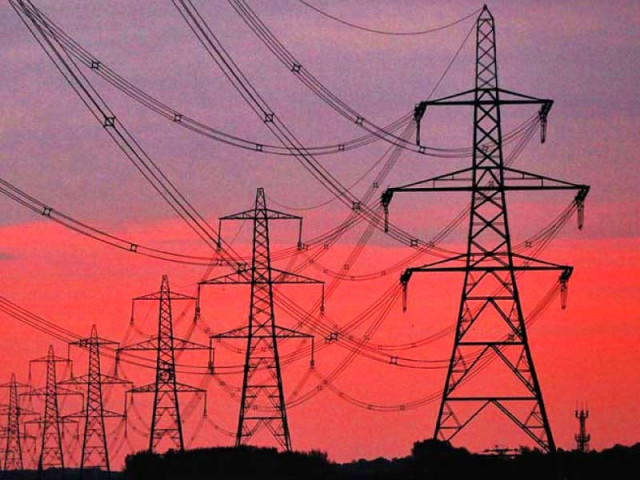Committee to review Rs200b borrowing plan for power sector
Power companies will borrow from banks through Sukuk issue to reduce their liabilities

Meeting participants decided that electricity connections of those who had not paid their bills for more than one year would be cut off. PHOTO: FILE
The borrowing will be made by pledging assets of power distribution companies. According to officials familiar with the development, the assets had been identified by the respective power companies and had been sent to evaluators of the Pakistan Banks Association for their market valuation.
In that regard, the Finance Division also approved a term sheet on May 15 for the purpose of issuing Pakistan Energy Sukuk-2.
The government is working on a plan of raising Rs200 billion by issuing the Pakistan Energy Sukuk-2 on the same pattern as that for the Energy Sukuk-1. The borrowed amount will be utilised to repay liabilities of the distribution companies through the Central Power Purchasing Agency.
The Ministry of Finance will provide government guarantee for the repayment of Rs200-billion loan as well as rental for the facility. The government has constituted a committee, headed by the adviser to prime minister on institutional reforms and austerity and comprising secretaries of finance and power, for reviewing the proposal and submitting its recommendations.
US company to invest in Pakistan’s solar energy sector
Outstanding liabilities of the power sector, typically known as circular debt, are increasing owing to less-than-required bill recoveries, non-realisation of subsidies, delay in tariff determination for end-consumers and non-payment by provincial governments. Another major reason that contributed to the build-up of circular debt in the last fiscal year had been the delay in quarterly tariff adjustments by the regulator. The determination has now been made.
It had been decided that in order to handle power-sector payables, the option of financing from cheaper sources should be explored in different phases. The option of Islamic financing through Sukuk (Islamic bonds) was explored and Rs200 billion was raised from Islamic banks through Power Holding Private Limited by issuing Energy Sukuk-1 with government guarantee for payment of rental and bond purchase price on maturity. This financing was acquired at cheaper rates as compared to the late payment surcharge being paid by the power sector to various entities including the independent power producers (IPPs).
Meanwhile, in a statement, the Power Division said it had received an additional Rs106 billion through recoveries from defaulters, reduction in losses and receipts from people involved in power theft in the past eight months - October 2018 to May 2019.
The Power Division said losses in the power sector had been reduced by 0.86% during the eight-month period because of different measures taken by the government. It was revealed in a high-level meeting held on Wednesday, chaired by the power secretary. Power distribution companies recovered Rs74.3 billion from those who were involved in theft and the defaulters. Total revenues of Rs705 billion were received in the eight months under review compared to Rs598 billion last year.
Line losses dropped to 15.96% in Oct-May 2018-19 compared to 16.82% in the same period of last year. Apart from that, the meeting was told, the circular debt was reduced by Rs28 billion.
Meeting participants decided that electricity connections of those who had not paid their bills for more than one year would be cut off.
Published in The Express Tribune, July 4th, 2019.
Like Business on Facebook, follow @TribuneBiz on Twitter to stay informed and join in the conversation.



















COMMENTS
Comments are moderated and generally will be posted if they are on-topic and not abusive.
For more information, please see our Comments FAQ